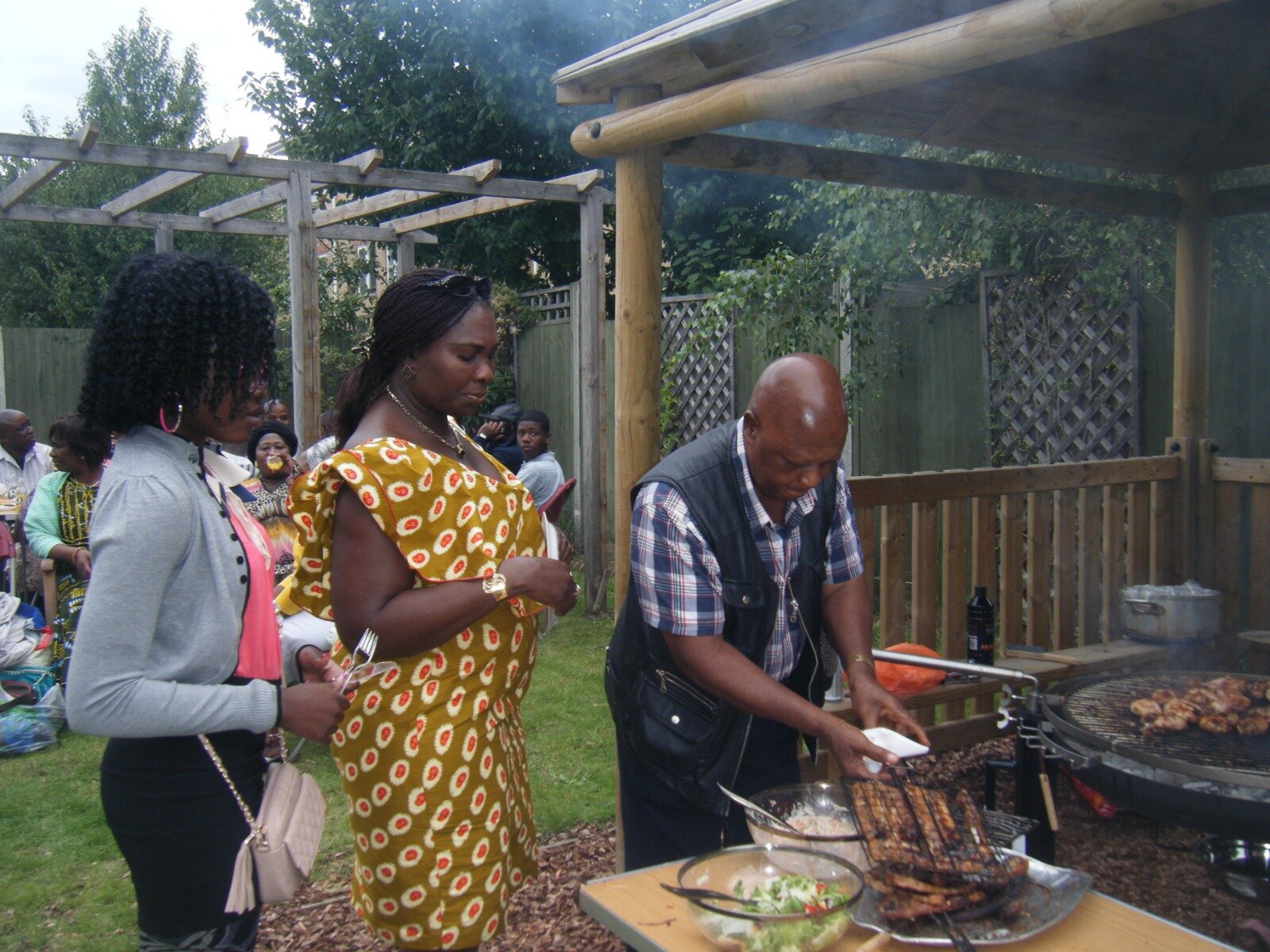
Origin Story
On a hot July Sunday morning in 1991 Daniel Yaw Sapani rang his friend Rose Ama Aninakua to tell her he was coming to visit that day. He said he couldn’t sleep as he had an idea that he wouldn’t tell her over the phone he just asked her to get something to eat and he would be over shortly.
She sat in the front room waiting for him, sensing what he was about to share was going to have a big impact. The thought that had plagued his sleep was even though the Kwahu Association were resistant to allowing individual towns to set up their own organisation, Mpraeso, Abitifi, Twenedurase etc, had all formed their own associations to support their people, yet there wasn’t one for Obo. There were also other Obo Associations in the US for example but nothing in London. That day Yaw decided that they had to do something about it. What followed was the establishment of our association that would build a legacy over the following 30 years.
“In a way that was the first meeting of the Association” says Ama. The two of them agreed they would start gathering information and inviting people to form the initial group. Yaw encouraged her to go to all the parties, funerals and meetings from that point on with a pen and paper and to have the courage to seek out people from Obo. Ama recalls that she was nervous, but Yaw encouraged her by saying “if they squeeze their face just walk from them and find someone else”.
So, from then on Yaw and Ama would look for Obo people at every event they attended and soon the word started to spread.
The first meeting was attended by six people and was held at Yaw’s home at 278 Amhurst Road and included Yaw, Ama and Mrs Christiana Obeng-Mensah. They didn’t have an agenda as there was only six of them, and they focused on how they would grow the membership, finding people from Obo regardless of the origin of their spouse. The interest soon started to rise..
Not long after Mrs Waters sought out Ama to find out what the formation of Obo people was about and soon her and her husband became two of the founding members. Similarly, as soon Eva Ekuama found out what was happening, she agreed to come and brought 4 friends with her and became a major advocate over the coming years.
At the end of each meeting everyone would contribute £1 each which was given to Ama to buy stamps and envelopes. She would then sneak into work at The Public Trust Office early in the morning and use the office resources to type up and print out letters raising awareness of the organisation and notifications for the next meeting.
Yaw, with his experience as Master of Ceremonies combined with his reputation within the community for his hospitality and his forthright and determined personality, became the first Chairman. His home became the original centre for the organisation, where they would meet on the first Sunday of each month, supported by the Sapani family who knew their role would be to offer typical Sapani hospitality and refreshments for everyone attending the meeting.
The second meeting had 10 people attend, by the third there was 13 and each month it grew and grew. New people joined, others found the commitment too much to juggle with other responsibilities and left but after 8-10 meetings there was enough people to warrant moving to a hall and relocating to Manor House.
Mrs Waters by now was the Treasurer, Ama became the Secretary and Mrs B Omere became Welfare Officer.
By the end of 1991 there were 20-30 members paying £5 a meeting. We formed a motto and established a manifesto that is still used today. Over time, we raised more money through membership (putting it initially at £60 a year) and our other fundraising efforts.
After 3-4 years we upped the membership to £100 a year and by then we had enough members to need bigger premises so we moved to Battersea.
An initial big focus was creating educational scholarships in Obo, building on the existing efforts of Mr Siama, Kwabena Jackson and Mrs Waters. Aside from membership fees, money has always been collected at events and awareness-raising parties. We also support our members here for example with provision for deaths in the family, birthdays and other celebrations.
Yaw continued to be the Chairman for many years and continued to be a valued passionate advocate until his death in 2017. He is greatly missed.
When he was reluctantly allowed to step down, Mr Asiamah took over, then Kwabena Jackson and now Sharon Nkansah who is the first female Chair.
Today there are 2000 members and the Association continues to meet monthly and deliver under the motto of “Love and Unity”.